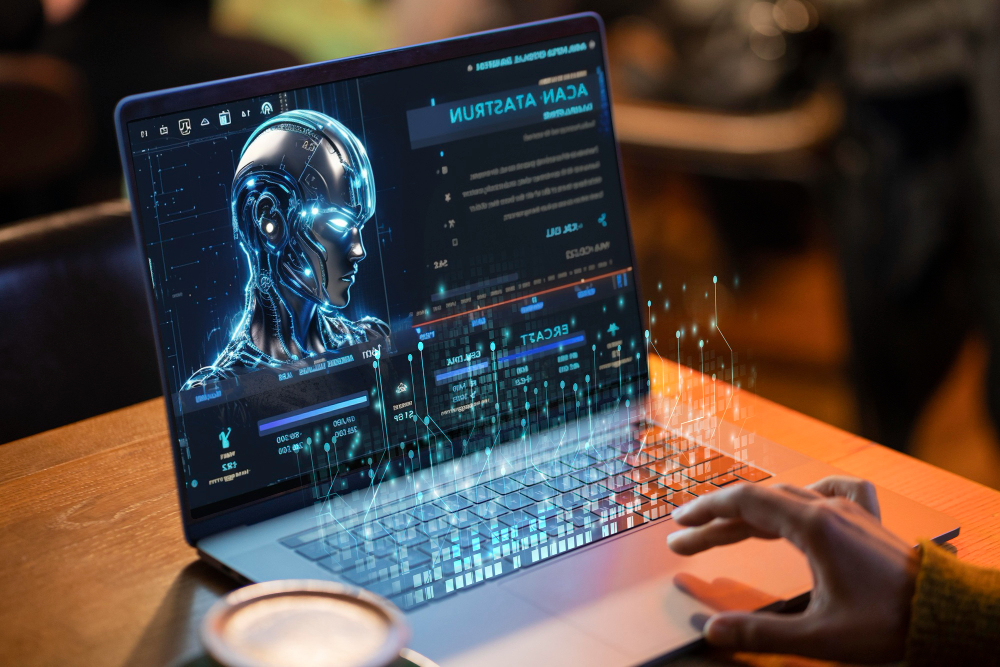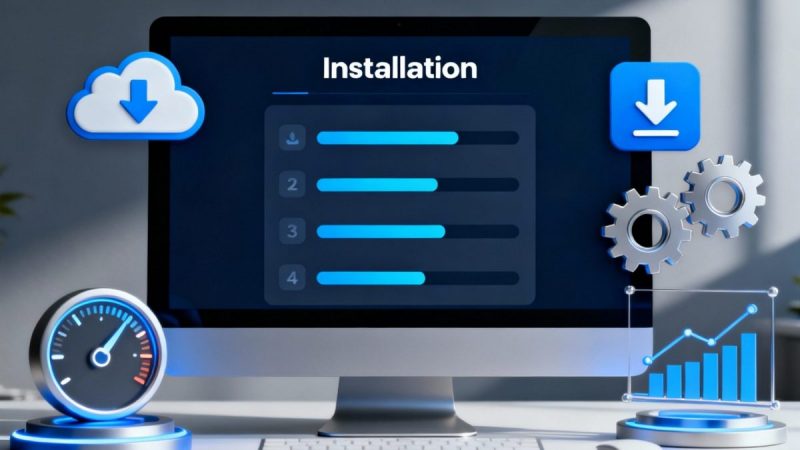Best Ways to Use Generative AI for Software Coding

Generative AI has become a powerful tool for individuals and companies that specialize in software development. Developers depend on this transformative technology to enhance software development efficiency, resulting in better and more robust applications. This technology can automate different aspects of software coding, accelerating business productivity. As a result, generative AI solution saves developers’ effort and time and can enhance the software code’s quality.
But what are some best ways to use this revolutionary technology for software coding? Join us as we thoroughly explore the power of generative AI and how it is helping development teams create software code.
6 Ways to Use Generative AI for Software Coding
Here are some ways you can leverage generative AI for software coding:
1. Code Creation
Creating code is among the most demanding tasks in software development. It requires you to clearly understand the software requirements and goals and have experience in one or more programming languages. As a result, this task is often executed by technical teams. However, some pieces of code can take time to create manually, delaying the software development process. But what if not every piece of code has to be generated manually? This would accelerate software coding, driving higher productivity.
Generative AI can generate complete code or code snippets for specified functions. For instance, OpenAI’s large language models (LLMs) are capable of writing software code based on natural language descriptions. Instead of manually writing every piece of code, developers can use these AI models to automatically create functions, accelerating the coding process. Leveraging these generative AI models can save developers significant time and effort.
2. Bug Detection
Detecting and fixing bugs in software code is essential to delivering a seamless user experience. Missed errors can frustrate users, making them ditch your software for that of competitors. The process of manually detecting bugs is often time-consuming, as some errors may be deeply embedded in the code or logic. And that’s where generative AI can save the day.
Using generative AI to detect errors and bugs in code can save testers time and effort. This technology can be valuable in large software projects, where manual bug detection and code review may be error-prone and time-consuming.
3. Documentation
When creating software code, developers often document the code for future reference and easier onboarding. This process can be time-consuming when done manually. It only supplements their developers’ main purpose: writing the software code and ensuring it works correctly. But how can generative AI help?
Well, generative AI models like Open AI’s LLMs can generate detailed code documentation. This makes them valuable for both users and developers, as it helps make the code more understandable and readable. Also, it frees developers from the routine tasks of documenting code, allowing them to focus more on the core tasks that demand critical thinking and human intervention.
4. Code Autocompletion
Besides using generative AI to generate code, this AI technology can be used as an autocomplete feature. This is because generative AI models can analyze code and recommend context-based next-best actions. Therefore, it can be incorporated into integrated development environments (IDEs), helping developers code faster and with minimal errors.
5. Test Case Generation
Manually generating test cases is often challenging and time-consuming. However, it is essential in software coding, as it helps identify bugs and glitches that may affect performance and usability. Generative AI services has revolutionized how developers generate test cases by automating the process.
These AI-powered models can create robust test cases for code. This ensures the code is thoroughly tested and free of bugs. As a result, it improves the overall code quality.
6. Idea Generation
An application or software begins with an idea. Coming up with new and unique ideas for software services and products has become more challenging than ever. The high competition in the market has seen the industry flood with hundreds of thousands of software products, making it difficult to create a unique solution. This has made it harder for organizations and developers to stay ahead of the competition.
Generative AI models have emerged as crucial solutions to these challenges. These models can analyze large datasets to create new ideas for software services and products. They
augment developers’ capabilities, enabling them to create better and more advanced software products for their customers.
It might be interesting to read on Is BFSI Ready for Generative AI?
Why Use Generative AI for Software Coding?
As we’ve seen, generative AI is widely used for software coding. But why is this the case? Here are some advantages of using the transformative technology in software coding:
1. Efficiency
Generative AI has the power to improve operational efficiency in software coding. This technology can automate time-consuming and repetitive tasks. As a result, it helps developers achieve more within a shorter period, enhancing productivity.
2. Innovation
Developers’ software ideas may be limited due to insufficient exposure. However, generative AI empowers them with new ideas, enabling them to create innovative software products faster, pushing the boundaries of what’s possible.
3. Enhanced Code Quality
Ensuring software quality is essential. Generative AI helps enhance software quality by detecting potential bugs and errors before they explode into significant incidents. With generative AI, you can analyze large amounts of code faster and recommend changes to enhance efficiency. This improves the overall quality and performance of your software code.
4. Accelerate Coding
Coding has always been one of the most time-consuming tasks. However, generative AI can significantly accelerate software coding. It automates some aspects of code development, enabling developers to deliver applications faster and more efficiently.
5. Scalability
Scalable applications are often challenging to create as they handle massive data volumes and users. However, generative AI models can help developers create scalable software and optimize their code to handle demands related to increasing user base. These applications are essential as we look forward since more data is becoming available.
Final Thoughts
Generative AI solutions can be used in software coding in various ways. For instance, it can automate code generation and completion and create test cases and documentation, among other activities involved in software development. Leveraging this technology helps unlock new possibilities in software coding, resulting in better software products and services. It improves efficiency and code quality and speeds up the coding process.
However, its use in software development must adhere to various standards, including ethical and legal requirements. Also, generative AI models must be assessed to ensure fairness and unbiased contributions to software coding. This way, generative AI can help unlock new possibilities in software coding while mitigating possible negative implications.
Author: Muthamilselvan is a passionate Content Marketer and SEO Analyst. He has 8 years of hands-on experience in Digital Marketing with IT and Service sectors. Helped increase online visibility and sales/leads over the years consistently with my extensive and updated knowledge of SEO. Have worked on both Service based and product-oriented websites






